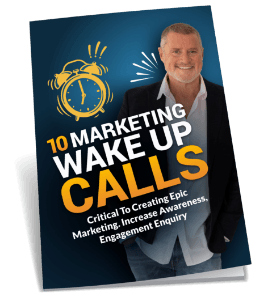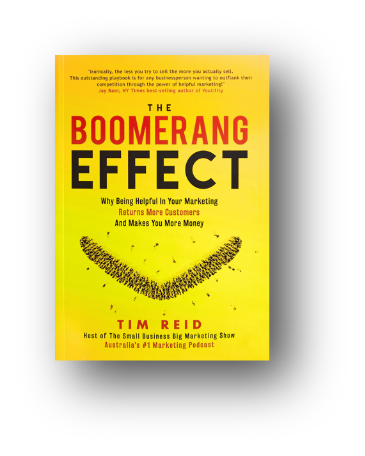Have you ever been so deeply touched by an idea, that you had no choice but to leave a comfortable existence behind, and pursue it … like nothing else mattered? Well, that’s exactly what happened to sleepbus founder Simon Rowe … and whilst it’s still early days, he’s on a mission to ensure that people who are sleeping rough get a comfortable, safe night’s sleep.
“Following 12 months of research including being homeless myself, the idea of sleepbus was developed. From that research, the issue that kept coming up was, not enough safe places to sleep while working on pathways out of homelessness. What was worse, was allowing people to fall deeper into the cycle of homelessness, rather than catching them early, keeping them safe and healthy until they got back on their feet.”
– Simon Rowe,
sleepbus
There’s loads more insights just like this that will help you build that beautiful business of yours into the empire it deserves to be. Hit the PLAY button above to listen now, or subscribe free to hear the full interview. You’ll also find the full interview transcription below.
Here’s just some of what we cover in this very candid interview:
- The moment he decided to escape the corporate cubicle and start SleepBus
- How a traumatic life event at the age of 19 laid the foundation for doing what he does
- Why he chose to be homeless himself in order to test his concept
- How he got the first SleepBus to market
- How he’s getting SleepBus known in a marketplace of 600,000 Australian charities
- And plenty more …
@SleepBus founder Simon Rowe on how he’s providing a safe and comfortable place for those sleeping rough to sleep.
Posted by Tim Reid on Sunday, 3 June 2018
A little more about today’s guest, Simon Rowe of sleepbus:
Three years ago Simon Rowe left his cushy corporate job in a mahogany-clad corner office, to start sleepbus … a charity that produces fully decked out buses to provide safe, temporary, overnight accommodation to those sleeping rough on the streets. Today he has one fully operational sleepbus in Melbourne, and a vision to build 319 sleepbuses providing over two million safe sleeps per year all over Australia.
Here’s what caught my attention from my chat with Simon Rowe from sleepbus:
- I love how Simon so clearly articulates the problem he’s solving in two simple words … Safe. Sleep. How clear are you on the problem you’re solving for your precious tribe … If you think you’ve nailed it, then leave a comment below.
- Simon is also crystal clear on why he does what he does. The fact that he was homeless way back when he was 19 years old is clearly his motivation for putting everything he has into making sleepbus a success. How clear are you on why you do what you do?
- I didn’t love some of Simon’s self-talk. Phrases like “Homelessness isn’t sexy” may be true … but reinforcing them in his everyday speak may be damaging to his dream in the long run. What negative things are you innocently saying to yourself and others that may be damaging the way you market your precious business?
- Simon’s hunger for media coverage. He jumped at the chance for an interview. Then as he was leaving the studio (which was at radio station 3AW) I introduced him to another of the on-air hosts, he pitched his story, and secured another interview on a national radio show. So … what are you doing to secure some media attention, huh?
Simon Rowe Interview Transcription
Simon
Prior to this I was in the corporate world. I’d had a business career. I was a bit like that although I enjoyed it, I had a few businesses in my time and then moved over into sort of consulting I suppose and helping other business people with their businesses and then it sort of grew from there and I used to go as operations specialists. Helped people restructure the business and see what is wrong.
Tim
You are a bit Mr. Fixit. I hear.
Simon
A bit of a fix it guy yeah it sorts of became that sort of thing. I just enjoyed digging into finding out what was wrong and I ask questions and people like to tell me things as well. Which is good so you can get to the bottom of things really easily.
Tim
Were you jack of your corporate life?
Simon
No, not at all. It’s quite successful. There was any reason for me to get out of it. I had the lovely corner office, with the glass and the view and all that sort of stuff.
Tim
Earning a good quid.
Simon
Yeah.
Tim
Great job. Not looking around. Not looking at starting a charity?
Simon
It’s absolutely not. 100 per cent not. Even when I was looking into things it was, don’t start a charity you know there’s too many already. The last thing we need is another one, and that sort of came out of my research as well when I was in the operations sort of game. Part of my thing was sometimes to go undercover in a company and as an operations manager or just a BDM on the ground or something like that and speak to franchisees. Speak to the guys, all that sort of stuff, and just find out what was going on and just get everybody side of it and then formulate a strategy from there and then I present that strategy to the top people and then they’d say yay or nay and then we’d implement and that sort of thing. So, I went along with the same mindset with the charity. I was originally going to help some other charity that was already doing something in space. My money. My experience. My skill set.
Tim
Have you had a bit of a mindset around maybe getting involved a bit of a social conscience but maybe not your own charity.
Simon
Yes social conscience but only because I bumped into a guy that was homeless on the street.
Tim
Tell us the story how did you come.
Simon
I was in Carlisle Street which is a busy sort of trendy coffee Street in St Kilda Melbourne and I was just heading to the Coles and to get some groceries on a Saturday and it’s a pretty gloomy day but then there was a guy curled up in the sort of doorway of a bank of Melbourne, new branch that just opened and people were just stepping over him because he is half out on the footpath, half in the doorway and it was just one of those scenes you know we’ll walk past homeless people. We’ve all seen them, walk past and for whatever reason this guy, this day, I stopped and had a chat to him and I just remember him sitting up I just said, hey I’m going to Coles can I get you anything. And just as I was talking to him I just remember him, it was just a tired guy. He just looks so tired, his eyes and look I don’t even think he would have been much past sort of early 30s that sort of thing. But you could just tell that he’d had a hard time and didn’t look like he was on anything he just looked tired and I describe it tired to his core. Yes, I ended up going to Coles. I got him some stuff on bananas and coke and whatever else he asked for some chocolate I think it was a game 20 bucks and then I went home and my kids were home and I just explain this guy. I couldn’t believe how tired this guy was and I started crying and I don’t cry. I’m not generally a crier but I started getting tears in my eyes. My boys were sort of like, oh you should do something about that dad.
Tim
How old are your boys?
Simon
They’re 18 now. So they would have been sort of 14 15 and 16. So when your kids say that, you know do something about it.
Tim
What do they say that?
Simon
Maybe because they thought I could which I’d like to think but also I think they were aware of the world and I think the fact that I was emotional about it as well not that they had not seen their dad cry but it was just one of those experiences where I think I must have been quite passionate about it at the time and not that I thought of it at the time and I remember people ask me in later times in speaking with people about why do you think you started crying and I’d never really had an answer about why.
Tim
That seems an obvious question to me. I’m actually a bit of a crier unlike you Mr Tough Guy. Isn’t that an obvious question?
Simon
It is yeah. I think people were trying to dig the deeper thing here and that sort of stuff.
Tim
And did you see any of this fellow in you.
Simon
Yeah, I look and say that’s where it sort of led. When I sat back and thought about it I’d sort of forgotten that when I was 19 I was homeless for four months and I’d had a job and my car engine blew up. Drove too hard as an 18 19-year-old and the engine went but I needed the car to get to the job. This is in Adelaide and so I spent my rent money to fix the car and then I got evicted but I didn’t panic I was 19.
Tim
Where are your kins?
Simon
I don’t really have those. I don’t have a close family network or anything like that. So it was just sort of me in Adelaide. I’d moved to Adelaide from country Victoria to play football and that’s how ended up in the city. And so I found myself living in that car that I fixed.
Tim
Tell me if I’m pushing. I know we didn’t talk about triggers and safe words. But I am interested because I tell you why I’m interested. I think you’ve done and you’re doing something amazing. I think many people have had the thought of going and helping on a macro scale others. But most don’t, you have. I’m just try to figure out what that is. You’ve been homeless. You clearly must have seen, you didn’t recognize at the time but this guy that could have been you.
Simon
So that’s what I think about now and I think that’s where the spine of sleepbus sits. And what I’m trying to do with sleepbus is I think about 19 year old Simon and had I not had that car, had I not had that job. What might have happened to me. And because I had the job and I had the car. I had mates and I probably could have pitched in and lived in with my mates at their parents house or something like that at the time but probably too proud and didn’t think of it at the time that it was that big a deal I just thought I’ll sleep in my car. My mate used to drive past in the morning and turn his horn on his way to work and I’d wake up, go to the local carven, park, jump over the back fence, have a shower and go to work. Saved for my rent and bond to get into our house again for four months later and that was it. But I never from that moment on though, it was like not not finding myself in that situation again. Unfortunately too many people.
Tim
Between that, a 19 year old Simon experiencing four months of homelessness and you starting sleepbus. Can you reflect on times when maybe you were covering up an itch to get out of corporate and maybe do something in a more social level
Simon
I thought more about myself really as far as. And like we all do, we want to make sure that we’ve got everything for our kids and we don’t want to find our kids in that situation. I was a dad first and foremost. And I’d done small things over that sort of 20 year period from then in the business world and that’s stuff where I’d helped others and I’d taken in, sort of giving kids a shot at a job or something in a business I might have had. Just little things like that but not consciously sort of reaching out to do that sort of stuff. But I think it just time and place. It was just that time where I also think that the timing where I was in my own personal sort of journey and I’d had a successful career and I’ve been lucky in having those sorts of things. So it was good, timing was right and particularly a skill set that I’ve gained over the years as well so I’ve had that experience with being homelessness but then= I’ve battled in small business. I’ve worked for big business. I’ve gone into the corporate stuff and battled there and learnt how to operate these things and start things so I think my skill set lent itself to fixing.
Tim
Your kids also have said, dad time to do something. Do it. Tell me about that period of like hearing that from your teenage sons and doing something and what did you do.
Simon
Yeah. So that was a turn on the business brain I think. That way okay go with what you know. Use your skill set. Use this skill that you’ve built over the last 20 years so that was where I went into research and research for 12 months. If I going to help somebody I want to have an impact to many people sort of you know get my fifty dollars over there and that’s it I’ll give my grand that’s it. Where did it go. I have no idea and that’s it. I sort of thought okay well if I’m going to have an impact where could I most do that and where does that impact need to be. So as I do in the corporate world I went undercover as a homeless person a few times and stayed in some shelters to see what shelters were like.
Tim
How do you do that.
Simon
You put on your dirty dirtiest grubby as clothes as the stereotypical homeless person, people think they are and lined up like everybody else and I stayed in one place where it was just mattresses on a floor and a hall type thing. And that was the catalyst for sleepbus. So I was allocated a mattress along with everybody else of my only sort of place and lay down and there’s obviously all kinds of people in all different types of situations and states I suppose. And it was just scary like I was scared the whole night and I didn’t sleep the whole night. There was a bloke next to me who’d done it before. Clearly as soon as his head hit the pillow he was asleep and snoring. But then 30 minutes into that people were going through his bags and they were taking the shoes off his feet and I was like okay, safe sleeps. How do I do safe sleeps.
Tim
That was your moment wasn’t it.
Simon
That was my thing. And then when I looked into these shelters bricks and mortar shelters that sort of stuff. No landlord wants them in their building. You can’t afford to buy one obviously where you need to be. The cost to set one up and run it, is just massive. So I had to sort of put my thinking cap on about it, how do you provide safe sleep’s cheaply and then if you work that out you’ve got to work out the marketing strategy for that. How do you then get people involved.
Tim
Will come to that. Just going back. Dare I use a business term but you got proof of concept on that night, on a mattress on the floor, in a very unsafe space. Safe sleeping was the thing. You said you spent a three or four nights in homeless shelters. What other research did you do.
Simon
I researched other charities. So I looked at, not just in the homeless sector but also who’s doing what, who’s doing well, how are they doing it. From a marketing business solution based sort of theory, I spoke to some of the guys from Movember and looked at how they grew theirs and the mistakes they made early on and they were telling me things that went wrong in the early days and what they had to change and a lot of that was where the money went.
Tim
Just speaks the Orange Sky Laundry guys. Past guests of this show. Twice.
Simon
So we did a few emails back and forth and they wanted to come and have a look at sleepbus and offered to do some laundry and that sort of stuff for the bus and that sort of thing. But that was a unique experience I suppose because other organizations that I’d spoken to perhaps weren’t as friendly and that through me, coming from the corporate world into this sort of new because I think because there’s 600 of various charities going for the same money.
Tim
So to that point it’s all very well to go. You’ve seen this homeless fellow in Carlisle Street you’ve gone and identified the problem and it’s very clear to you that safe sleep is what it’s all about. Ticking those boxes. But as you say 600000 charities in Australia I think there’s 55000 registered not for profit, either way big numbers. You know I look at businesses, I look at a cafe when it opens and go really does that street need another cafe. Then how do you cross that one where you go. Yeah. Well charity is all about getting funding, volunteers from the public, from corporate sector, from government. You’re going to be another one. Sure sleepbus has found may be a gap that isn’t being met. But what made you think you’d nail that.
Simon
So part of the research that showed, that your established. Maybe those 55000 but out of that maybe 5000 of the top sort of lot that are bringing in the money and doing it well and have been doing it for a long time so there have been established. It tends to be the research shows that they make their donations come from your 20 to 65 year old plus woman and they donate. And that’s where all the money comes from. And so I thought okay well two things one was okay well that market is saturated in a business sort of thinking. But also I don’t want to step on people’s toes if that’s where they get their money from. There’s plenty of other groups out there and organisations and sectors that I can perhaps draw on to find engagement with and part of that was I looked at high school kids and university kids. They’re looking for something to engage with. They’re desperately trying to find organisations to engage with because they want to change the world that they that they’re seeing.
Tim
Millennials.
Simon
Yeah that’s it. And so I looked at, Okay so obviously I had high school aged children so I use them as a bit of a target audience as well. And so I thought if I can make a cool charity how do I make a cool charity that these guys want to get involved with and then how do I grab and then extension of that how do I get the young professionals on board who are then one day going to be the bosses of corporates and then get those corporates on board as well. So I didn’t want to just go after that same market that everybody else did. So then I had to structure this charity before I even began. How would that look. How would that operate. Right down to sort of target markets but also where would our money come from and how would we run this organization and so I break it up into three sort of groups. We would obviously have donations from people that wanted to support sleep bus and that would be one part of our revenue stream if you like. The other part would be your charitable foundations and your corporate social corporate sponsorship or some sort of support in that way and then government funding along with our own. We need a social enterprise to be able to make our own money. To the point though that I wanted to bring that back that we produced two thirds of our own money and then the rest was either from government or corporates because I didn’t want to rely. I found too many charities rely on the hand out either from donations or government. And then when governments change or things change. Economies change they lose the funding. Everybody dont have a job. We can’t run that program anymore and I don’t want to be in that space.
Tim
Basically you’re planning. You’ve to figure it out. This is a good idea. You’ve got your marketing strategy in place. you’ve got an idea.
Tim
That proof of concept was launched the idea and see if other than me and my network thought it was a good idea. So I put it on Go Fund Me to sort of see if I could raise money. Twenty thousand dollars for a bus and we raised over 100 grand in like four weeks. Now we’re global. I got phone calls from all over the world like how did we get to sleepbus in the US or England or Germany or all those sorts of places and I went woah okay. And that’s kind of when the corporate job sort of started taking a backseat in space. It got to a stage where it was either going to have a crack at this sleepbus thing or you’re just going to forget it go back to the corporate world and I thought I’ll have a crack and so I quit and went for it.
Tim
I bumped into a friend at Southland shopping centre today and she said What are you doing tonight. And I said I’m interviewing you and she said I donated money. What do you do then. You’ve got you got the money. You leave corporate. Tell me about the moment you walked into the boss’s office.
Simon
It was actually review time and was sitting down the review and I said look don’t bother I’m going to call it a day and here’s what I’m doing and they’re quite supportive and yeah look it’s difficult to sort of say you know good riddance kind of thing. It wasn’t like I was going to the competition or anything. I was going to follow a passion and I know I kind of like I speak to school kids. I go to schools and university things like that and speak all the time and conferences and and I sort of say, they said why did you do it and I sort of think I’m having a crack because I think I can and I think if you think he can do something have a go. So that was sort of where it was and I was probably cocky enough to think that I could do something so I thought I’d have try.
Tim
What do you do. You go okay I’ve got some dough, I’ve got a little bit of a runway as the start up community talk about, you gone by bus.
Simon
That was the proof of concept then. The proof of concept for idea was established all around the world. We’ve got news and all sorts of stuff andthen it was okay theres an eager to build this thing and show people what the idea really is. And part of that research was that people people have stop giving to charity because they never believe the money goes where they say it’s going to go. It goes to overheads and lots of stuff and overheads are an important part of a charity. You can’t run them without that sort of stuff but people don’t like that and that’s fine. And so part of that was okay put 100 percent of the public donations go directly to a bus and you can see how that’s built and that sort of thing and so on. On our first prototype bus everybody’s name that donated to bus is on the back of the bus or printed out so you can go and see your bus and so it was by a bus and then fitted out and then test it. See if it’s going to do what you thought it was going to do and although I had a good design and I’d done a lot of research and stuff until you actually test something and I couldn’t. And that was the first stage proof of concept because a lot of people were because it’s never done been done anywhere in the world like this before. It’s one of those things where it’s done anywhere and when you go and speak to the council or governments they sort of sort of I dont know about this we’ve never heard of this before. This is an odd way of doing things and I’m just and my theory was well it’s cheap. It’s mobile we can go where people need us. It’s adaptable as far as if that group of homeless people move on from that area or they find themselves in housing and that sort of thing. We can move the bus somewhere else and we can grow where we need to.
Tim
We are chatting with Simon Rowe who is the founder of sleep bus. So what do you call your clients. Guests? As a guest, treat me as a guess. What would the experience be if I was to head into a sleepbus tonight?
Simon
So part of that was. It was about not having any restrictions. A lot of shelters now will have restrictions on who can use it because there’s limited space and you’ve got to have a list basically cause you’ve got to be out have some reason to turn people away and I found that counterintuitive to do that. And so my idea was we’ll have one rule which is quite enjoyment so doesn’t matter if you’re on drugs or drunk or anything or perfectly well and healthy just in a bad spot for the moment as long as you can hold it together and enjoy your bed for the night watching TV. Theres TV in the sleep pods as well. In the front of the bus, there’s a caretaker on the bus so security type thing. I call them caretaker because it’s not a security guard but it’s not a social worker either it’s just somebody that’s there to make sure everybody enjoys a quiet night sleep and just protect you. And so that person is at the front of the bus all night and then at the front of the bus also when you step up to go down the aisle of a bus if you like is two toilets. So part of that was security as well. Didn’t want people to have to leave the bus to go to the toilet. Let’s keep them safe put em on the front of the bus where the security person is. If anything was to happen with anybody any interactions it would happen around the toilets. I didn’t want them at the back of the bus and went up the front. And then where the chairs in a bus would normally be there all sleep pods. So they fit a person about 6 foot 2 6 foot 3 so they’re about that long. It’s a full single bed size and it has a roller door so you can lock your door and feel safe. It’s got lights, air conditioning, intercom to the caretaker and it has USB charger if you’ve got a phone and it’s got a free to air digital color TV on the wall just a small one but the people sort of saying tv it’s a bit of overkill in a bus. But people are weird when you talk about this sort of thing or even if you show them the bus.
Tim
Someone sleeping rough is not deserving of a bit of TV are they? Show me those people! How dare you.
Simon
But then also people come from the perspective of I sleep in my queen size bed with my own suite this sleep pods are a bit more. My go to a line is better than sleeping on a park bench.
Tim
Correct. So are these pods. Two high three high.
Simon
Three. So it is a comfy coffin. It’s not massive but I’m a fairly big bloke so my 100 odd kilos six foot and I made sure that’s part of the design as well and part of the reason for sleepbus was that it was supposed to be a temporary measure. You need to find your steps out of homelessness. You need to figure out what it is but I’ll keep you safe and give you a good place to sleep until you do. So the pods are designed to be comfortable enough so you will get a good night’s sleep but in the morning you want to get out.
Tim
So where do you go. Where do you choose to go to find the people for the night to sleep. And where do you park for the day.
Simon
I mean there was a situation where we were looking at Port Melbourne St Kilda because that’s where I sort of originally had the idea I suppose and then I met with a gentleman that worked in child services and that sort of thing and he said Oh did you know about a group of people that sleep under a bridge in Docklands and there’s kids and mums and men and all sorts of stuff and they sleeping under a bridge in a foot of water on milk crates so that they stay out the water. And I’d say well I’ve got a bus with 22 beds in it. We can help people out. But one of the difficult parts was trying to get councils to give you permission to park because it’s new. It’s a risk for them, I don’t know what’s going to happen with this thing how do we put our name to that sort of thing and I managed to speak to some Uber executives in Sydney once at a conference and they just said look, our model is just go for it and beg for forgiveness kind of thing. But now the idea is to park in a central location where we need to be. So CBD that sort of thing at this stage because as we spread there is need for buses in Ballarat. Here in Victoria. In Bendigo. There’s there’s a large community.
Tim
How do you know? Like you just once it’s full or do you have a loudspeaker going slowly.
Simon
I mean it’s funny. The homeless community is smaller than what you think and they all know each other. They all know what’s going on on the street and that sort of thing. So we park in the same spot every night. So the idea of sleepbus is that temporary things so we can roll in at 8 o’clock at night. And part of that was part of the marketing strategy because a lot of people don’t want a homeless shelter in my area or I don’t want this in my street or I don’t want this next to my building.
Tim
Don’t get me started on this. Orange Sky Laundry when I did a bit of work with them. Parked out the front of a very one of those big fancy brands, fashion brands in Collins Street and the security guard came out and said you know you cant come park here.
Simon
Yeah I’m torn as well though because I come from a business background so I can sympathize with that side.
Tim
I can sympathize at a theoretical strategy strategic level but apply a little bit of humanity to your thinking and pull your head if you can’t you can’t work it out.
Simon
So the idea with sleepbus is to park in the same spot each night so you know where to come to and then if that becomes a spot where we’re just not filling the bus and there’s a bigger group and I don’t know Carlton Gardens or somewhere like that wherever it might be then we can move.
Tim
Rep some numbers. How many buses you got? How many volunteers you got. Tell us as much as you can.
Simon
You know sleepbus is still quite new. People think we’re bigger and older than what we actually. Yeah sometimes that’s a good thing and sometimes that’s a bad thing. So I’ve literally got one prototype operational bus and that was the proof of concept and and part of my discussions I managed to get in with some large consulting groups to have a chat about my strategy and what I need to do. One of the key things was you only get a chance to do this right once. So you’ve got to make sure that it’s well tested that it works beautifully and it’s going to operate as it says on the tin kind of thing. And so the next stage now is we’ve got one and then the next stage is to build another two to show that we can operate a multi site operation in three different areas.
Tim
I want to talk about marketing. One interesting question before I do that. You have done very well because I look at you. I thought you had more than one bus. I knew you didn’t have 10 or 20. But your marketing, just even at your website level it just looks professional. It looks when a nicer corporate person looking at that going maybe you could throw a few dollars at it. It’s very trustworthy. You’ve got your story there. You’ve got pictures of the bus. Very well laid out. So therefore you think that could be a problem because therefore people go oh looks like well these guys are sorted. You go and find another charity that doesn’t look as sort of starting.
Simon
Yes smaller charities that just get off the ground or they’re just a smaller charity. I’m actually one of those but unfortunately, we probably don’t look it.
Tim
And the other part of that is you’re out there. I mean we had you on the Steve Price show the other night. You’re out there. You’re doing the media. You’re a good speaker. You’re speaking at a conference or wherever. So yeah there’s a fine line between looking like you’re desperate and looking like you got your shit together. Tell me before we talk marketing you must have a minute and I have to tread lightly here but I think we’ve got a sense of humour as well I’m sure homeless people do. You must have some very funny stories. Sleepwalkers, snores. What I’m particularly interested in is there any sleepbus babies just yet.
Simon
Oh so there individual sleep pods. So there’s none of that going on. We do have pet pods. A lot of the homeless have companion animals right. And a geeky thing with that is we have an intercom between the owner in their sleep pod and the pet and people laugh at that. But then when I do speak about at conferences all the people just go Ohhhh and they care more about the pets. We’ve only really had part of the strategy is I spoke to Victoria Police and ambulance and fire brigade and different organizations and counselors that stuff. I want to keep them in the loop about what I was doing and get advice and and obviously police are very risk averse organisations so they were worried about safety and safety was a big thing and really the only time anythings ever gone wrong is just someone felt a bit claustrophobic. You know it’s not going to be for everybody and that was the thing. People have said what if what if they don’t like it. I’m just one solution. And at the end of the day sleepbus was the part of my real thing was that affordable housing which everybody talks about busting but nothing ever seems to happen. I think that that is definitely the way to go and it’s proved in other countries Canada and places like that where they’ve just built their houses and put people in it and it solve the issues. That’s one thing but I looked at it from a business point of view that yeah building houses is definitely let go but it takes a long time. So we need to get them off the street. Look st the foundation, I can build a bus in six weeks if I want to.
Tim
It’s potentially a 24 hour thing too. It doesn’t have to be a night time thing does it.
Simon
No it’s funny. I was at a entrepreneurs group conference a few weeks ago and that was one of the questions, could you not operate during the day as well, as people sleeping during the day and I haven’t because I used the bus as a marketing tool as well during the day so I take it to schools and universities and corporates and that’s all stuff. Show on the bus. Do the talk. Let’s run on my team whatever I’m going to do. Which is a powerful thing as well. But also I think part of it was, it’s the same reason why originally on the TV in my original design was the TV’s were going to shut off. The power was going to shut off at midnight because this is sleepbus. You stay up and be up all night. But then who might say you can’t stay up or watch TV. You’re on the street. That’s bad enough. Ssome guy come in and go and you can’t watch TV. But also we think that people sleep at the same hours that we do but they don’t. And so at this stage I’ve done it just at night because that’s the cycle I’d like to get people into because the help you can get is during the day. So that’s a tricky trick.
Tim
How has having sleep bus changed you.
Simon
Yeah good and bad. It’s a lot of work and it’s not that I didn’t think it was going to be hard but business is easier. It’s one of those things. I think with business when you’ve got a product or service to sell. You can live and breathe and die on that product or service. But then you’re also asking for money without necessarily a physical return to the person other than make your heart feel good. Which is still a good commodity and it’s a good thing to have. But we’re a consumer driven society so without getting it everything’s returned so part of it is yes you get a lot of onetime donations. So if I get some media and we get a push in donations people hear about it like oh my god how good is this guy. How good’s that idea and I love that and I throw my 50 bucks at it and that’s going to be great and that’ll do to save sleep’s and thanks for coming sort of thing. It’s getting the ongoing consistency sort of thing because I’m at startup stage. I still need to have my hand out. I’ve still got to ask for the money.
Tim
I want to finish on that. How has it changed you.
Simon
It’s a good question and it’s one of those things where I look at the corporate world now and I have a very hard time going back. If sleepbus failed and didn’t work I’d just have to go back into business for myself I think. I don’t think I could go back into the corporate world where I feel a little bit hollow about the whole thing. I helped a lot of corporates. Lot of franchisees. Lot of franchise in my time and this is the cycle, goes around. You hear a lot of stuff about franchisees or franchising at the moment. The good and the bad and I was a part of that and a lot of it just comes in cycles and so I feel a little bit hollow about just going back to a paid job.
Tim
So from a fundraising point of view you’ve got a number of things on the website. 27.50$ to donate anyone listening go to sleepbus.org And donate their 27.50$ That gets someone who sleeping rough. A good night. A good safe night sleep. And you ask people to pledge their birthday so don’t give me presents donate to sleepbus. I like that. You’re asking people to do crazy or creative things to raise money.
Simon
Start a campaign. You raise the money for me. Help me out sort of thing. And you’ve got a network that I don’t know. So if you start something and do something it can be anything.
Tim
So let’s finish with the corporate thing. We’re both from that part of life. We’ve both done and I’ve worked at a charity. You’ve got one. You got a lot of logos on your website from I’m guessing you’ve just put some corporate given you hundred bucks for something or another one is given you some strategic advice. Have you got a foundational corporate partner and I’m thinking Sofitel.
Simon
Yeah it’s one of those. Then again it comes back to that proof of concept. Even back in the early days when I was talking about the idea before I put on go fund me I spoke to my corporate network. So I got this idea. What do you think that’s all stuff? Have you got a bus yet? No. Get a bus, come back talk to us. So it was kind of like, okay I’ll get a bus and then it’s another thing is another thing. So that’s proof of concept.
Simon
Can I just add to that dare I give you marketing advice. You’re nailing it but you need to find someone in corporate that has a passion. That has a passion. That has potentially been homeless before. That’s going to be hard to identify who’s going to own up to that. I mean I even find with the sponsorship of this podcast if I find someone in an organization that loves podcasting that has a passion for small business and is a listener of the show and it’s happened on numerous occasions then it’s all good. We’re in. It’s a I don’t have to do the sell and b it makes for a really really solid partnership.
Simon
What’s a great segway in marketing. Because one of the things I’ve found in all the research I did. The planning or you know I nutted out a strategy from one bus to three hundred because that’s how many it would take around the country to get everybody off the street in this country. So it’s so it was a case of, I tried to make this cool brand that young people would get involved with engage rather than look at a bus and that is cool like I want to be a part of that I want to come and volunteer want to donate my money or to raise funds or throw a party I want to do this sort of stuff. The one thing I didn’t count on particularly when it comes to corporates is homelessness isn’t sexy. It’s not a sexy charity and that hurt and I didn’t see it. And so that’s one of the things where you’ve and and then later on can I just tell you this is the world though.
Tim
What about the thing happening at the M.C.G. and all the sporting grounds. Sleep out of the g. What’s that for.
Simon
So that’s for the Salvos I think.
Tim
That’s a pretty cool event. Thousands and thousands of people sleeping on sporting pitches around the country. The CEO sleep out. I would challenge you on that. That’s self-talk. That homelessness isn’t cool.
Simon
Have you done it.
Tim
No I haven’t. I know many who have.
Simon
And it’s a great networking opportunity. So it’s a good networking opportunity and the only feedback that I’ve had and again it comes back to we’ve got to prove ourselves. We’re still new. We’ve got to show that it works and that’s the stuff get more media because I think that’s when the snowball starts to happen too early. And part of that is we won the Telstra Business Award for the Victorian charity of the year last year and that was great because being such a new charity it gave you some credibility. You know they’ve been vetted. It isn’t just some we don’t know who’s got this dinky bus. It’s not like that.
Tim
Have you knocked on the door of all the betting retailers in Australia. Of all the hotel chains in Australia. Of all the pillow manufacturers in Australia.
Simon
Tontine gave us all our pillows and downers and sheets and everything for our first bus. And if I ask they’ll give it to me again. So there’s gifts in kind which is great. I approached some of the bigger bedding places because I thought great synergy no better charity than to have sleepbus as your charity and but I think I went too soon. So it was while I was building the bus I was talking about it. It was an unknown thing. So again that’s where it comes back to the media. I’ve just got to show more people what we’re doing. Get more buzz about it. Then I think the phones will ring hotter and it’ll be a lot easier. Even winning the things I mean I’d go back to the Telstra thing but that just helped because when I rang places they go oh I heard of you like your experience at Southland but I need more of that at this early stage because I am still very new. Even though it may not look it.
Tim
Mate I reckon it’s amazing what you’ve done. Given there’s one bus where you’ve got two years in.
Simon
Yeah from the time we launched our go fund me campaign.
Tim
I look forward to having you back on I hope. Now what I want you to do right now is ask listeners to donate money but is there one specific thing that big and audacious and scary for you to even ask for.
Simon
I’ll ask for it. That’s not a problem. I mean part of the to be able get that snowball to roll on top of media is that. Then once the media rolls and we get that snowball happening that we need to be able to churn out more buses and I can’t build them in winter in my backyard like I did for this first one. So part of it was I was looking for a site that we can have a hard stand a shipping container. A hard stand and I’ll build something on there if I need to but I just need a somewhere close to Melbourne CBD that we can build buses that we can reset them. And so the idea was to keep costs down was have one location so obviously here in Victoria that’s where I’m based where I can build all buses that we need. So our plan is to build 300 buses around the country.
Tim
What’s the site? How big is the site?
Simon
Beggars can’t be choosers but somewhere around a thousand square metres plus. Someone that will allow me to park the bus in their yard during the day so I can reset it and clean it and get some volunteers to come and help me with that no lot asked. I’m pretty easy.
Tim
I won’t say we will get that but I hope we get. Any real estate agents out there. How can they contact you Simon?
Simon
Oh yes they can just jump on the website. Everything is on the website. So there’s contact us. Because sleep bus is just me. It’s just one person all emails admin@ info@ accounts@ all that’s all comes to mine.
Tim
Sleepbus.org. Simon Rowe thank you buddy. Well done.
Simon
Appreciate it thanks so much.
Imagine living your life’s purpose. I think about that a lot. Well, Simon Rowe left a cushy corporate job to do just that. He’s now loving life and providing homeless people a safe place to sleep thanks to a brilliant idea he calls sleepbus. https://t.co/jZQd9Ds5uu
— Tim Reid (@TheRealSBBM) June 7, 2018
But the marketing gold doesn’t stop there, in this episode:
- Another motivated listener wins in this week’s Monster Prize Draw
- Starting this week I play an advertising jingle from decades gone by – a little marketing reminiscing, if you will. Here’s this week’s Jingle of the Week …
Resources mentioned:
- sleepbus official website
- Interview with the founders of Orange Sky Laundry
- The episode in which I went on-location with Orange Sky Laundry
- Interview with Rand Fishkin on SEO best-practices
- This week’s winners of the Monster Prize Draw:
- Johnny Leary from Brookfield Poultry Equipment
Please support American Express who make this show possible:
American Express Business Explorer Credit Card
Let your business expenses reward you. Every year.
If something in this episode of Australia’s favourite marketing podcast peaked your interest, then let me know by leaving a comment below.
May your marketing be the best marketing.




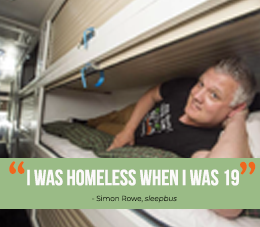


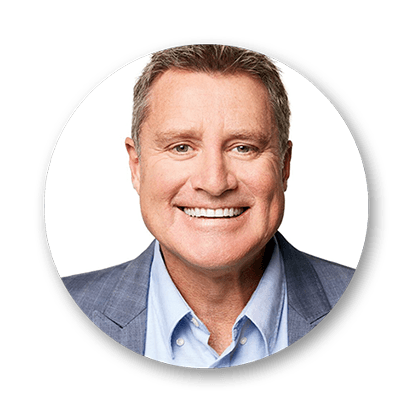










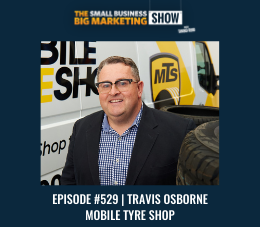
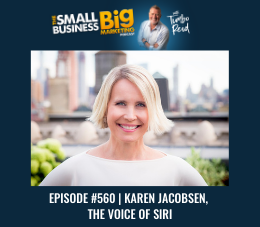
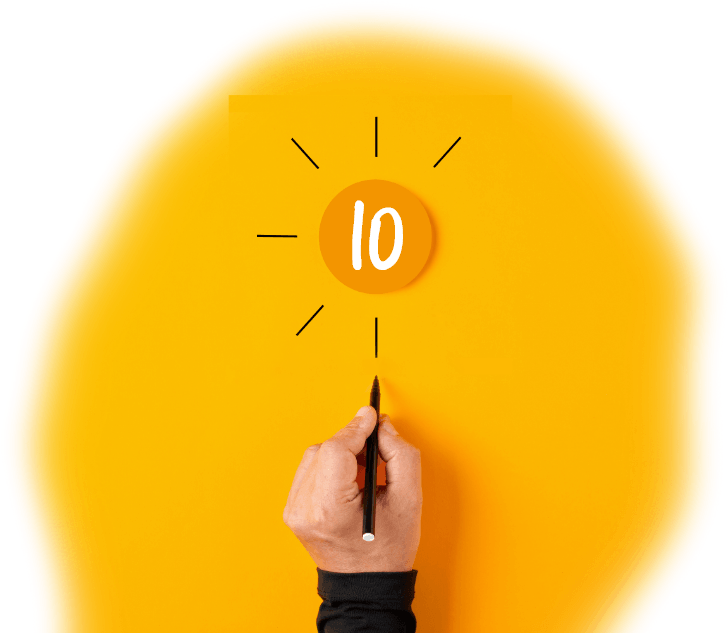
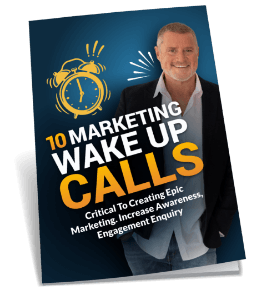
 Grab My 10 Marketing
Grab My 10 Marketing